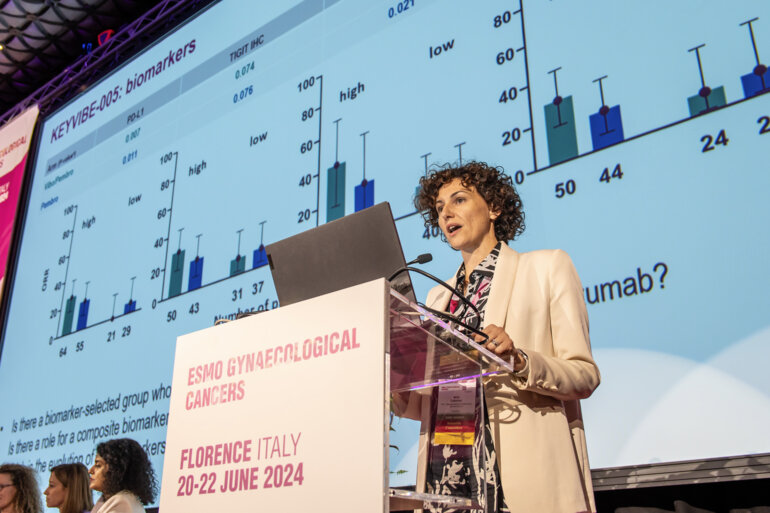
Eftilagimod alpha plus pembrolizumab shows promise in HNSCC with negative PD-1 expression
In the Cohort B of the TACTI-003 study, the combination therapy led to clinically meaningful response rates in patients with recurrent or metastatic disease

In the Cohort B of the TACTI-003 study, the combination therapy led to clinically meaningful response rates in patients with recurrent or metastatic disease

Benefits reported for the combination of ipilimumab and nivolumab further expand alternative therapeutic options for patients with unresected advanced disease

Lessons learned about the importance of the gut microbiome composition in immune checkpoint inhibitor therapy response could be crucial in tailoring cancer care

In the TRANSMET trial, a 5-year overall survival benefit was observed in a highly selected patient population

Final results of the KEYNOTE-585 study indicate that the current treatment standard for resectable G/GEJ should remain unchanged

Recent data indicate a role of immunotherapy for tumours with high levels of microsatellite instability, especially in the neoadjuvant setting

The development of KRAS selective inhibitors promises to expand treatment to a broader population of patients with KRAS-mutated tumours

Recent data from studies show novel pre-operative therapeutic options, but many pending issues need to be addressed

The phase II part of the ROCSAN trial failed to meet its primary endpoint but there may be potential for benefit based on efficacy and safety data with the combination

However, studies highlight cost as an obstacle to widespread accessibility in some countries
This site uses cookies. Some of these cookies are essential, while others help us improve your experience by providing insights into how the site is being used.
For more detailed information on the cookies we use, please check our Privacy Policy.
Necessary cookies enable core functionality. The website cannot function properly without these cookies, and you can only disable them by changing your browser preferences.